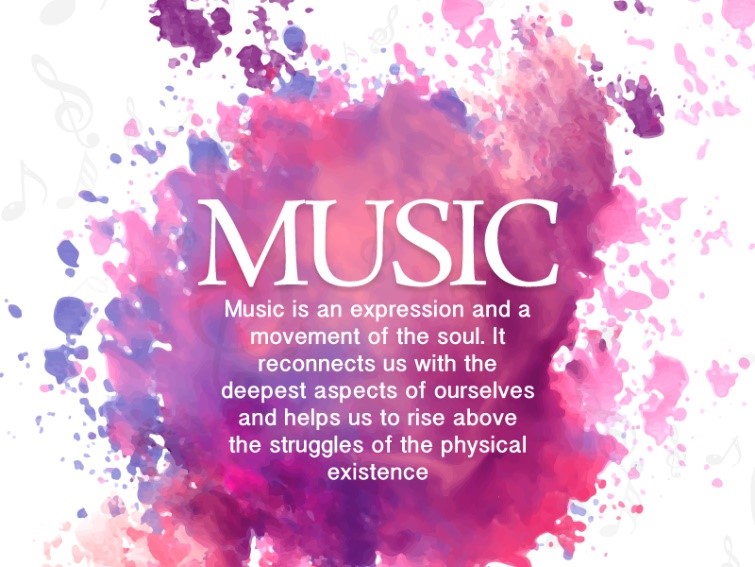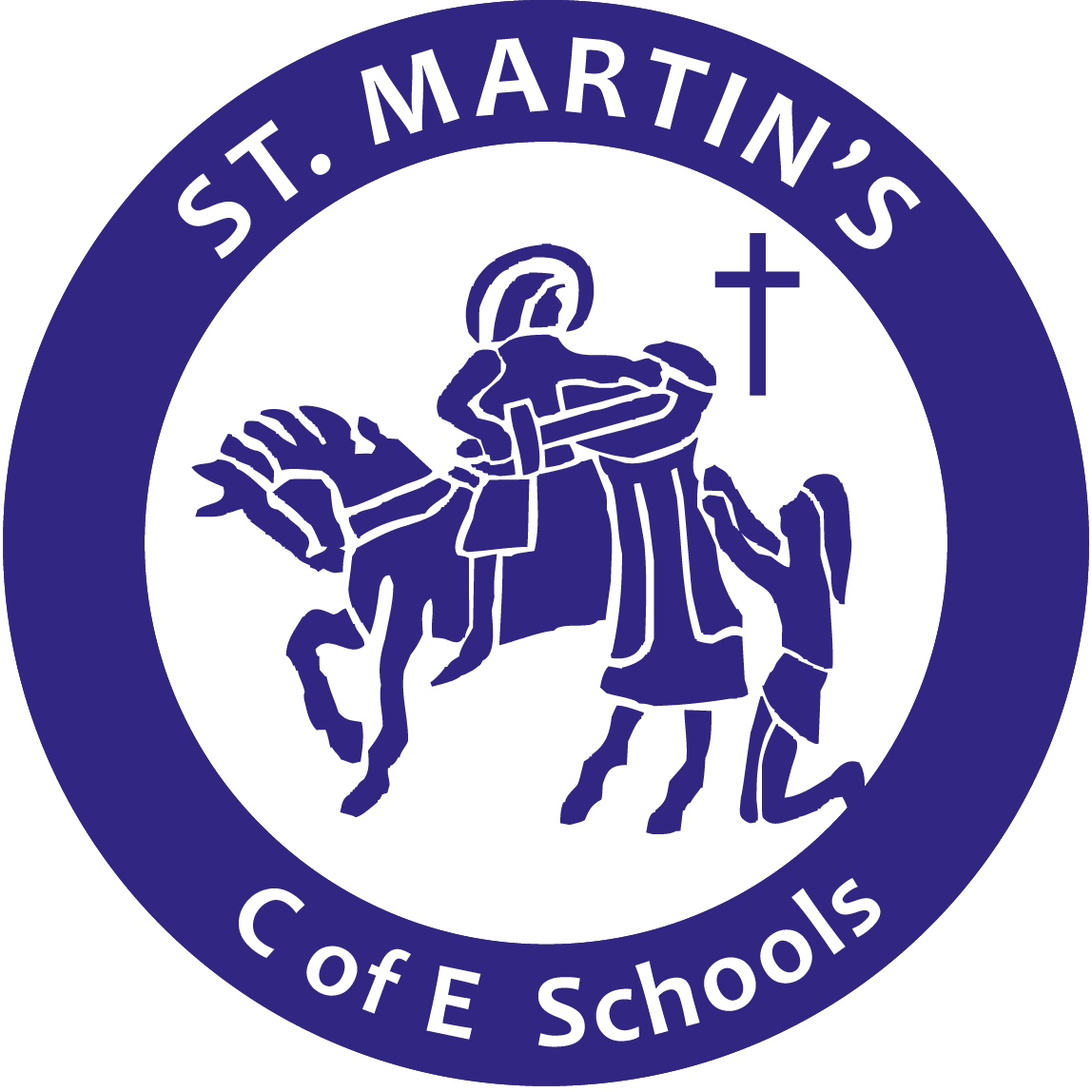Spiritual Development
Spirituality at St. Martin’s C of E Schools
As a church school we are concerned with the development of people’s mind, body and soul. We believe that spirituality should influence all areas of education and life, therefore we aim that all areas of the curriculum contribute to pupils’ spiritual development. Spiritual development relates to fundamental questions about the meaning and purpose of life which affect everyone, and is not dependent on a religious affiliation.
Spiritual development is not about becoming more spiritual, it is about realising or becoming more and more aware of one’s natural, innate spirituality. This is sometimes a slow and gradual process, at other times there might be significant stages of realisation, which are part of the ongoing ‘developing’ process. People don’t reach a finished state of spiritual development, but participate in the ongoing process of spiritual realisation.

Windows: Giving opportunities to become aware of the world in new ways. Learning about life in all it’s fullness. This includes both the things that amaze us and challenge us.
Mirrors: Giving opportunities to reflect upon our experiences. To meditate on life's big questions and consider some possible answers. Learning from life by exploring our own insights and perspectives and those of others.


Doors: Giving opportunities to respond, to do something creative in order to express, apply and further develop our thoughts and convictions. Learning to live by putting into action our beliefs and values.
Spirituality
Spirituality is a very personal experience. It differs from person to person, and often spirituality changes within people during their lifetime. Spirituality is not the same as having a religion or faith; a person can be spiritual without having a particular faith.
At St Martin’s we have reflected upon different definitions of spirituality:
“Spirituality is not something we can see; it is something we feel inside ourselves. It is about awe and wonder, asking questions, inspiration and being aware of something ‘bigger’ outside of ourselves.”
“Our inner self is where we can find resources within that come from a greater source i.e God. Our soul.”
It is important that we use age appropriate language to define spirituality, so when talking to our children we will refer to:
-
A sense of awe and wonder
-
Care for nature and living things
-
Wanting to love and to be loved by people
-
Our 6 school values (friendship, love, responsibility, courage, honesty, respect
Awe and Wonder
Children are born inquisitive, and it is our duty to nurture this natural curiosity and guide them towards looking at the world and noticing, with awe and wonder, the natural and man-made delights all around us.
We want to encourage them to ask ‘big questions’ about life, religion, nature, science and any other area of fascination. This is an integral part of our school curriculum and well as forming part of our daily acts of collective worship.
We teach our children to ask challenging questions and explore the importance of reflecting on the world around us. We take time to appreciate the natural world. Our dedicated Forest School lessons each week for Infant children provide opportunities for this.
Caring for Nature and Living Things
We provide many opportunities for children to learn about nature and the role they play in protecting our world. As a Church School, this is especially important. We have strong systems of Prayer leaders, pupil leaders, Eco Musketeers, Sports Crew and Well-Being Ambassadors. These groups enable our children to have a voice and ownership of the world around them.
Through science and topic work, children learn about the world and how they can care for living things. We are leading campaigners in our local community around issues of social action, courageous advocacy. The children have led campaigns about recycling and plastic usage.
Love
We are a very caring school and have love as one of our school values, we pride ourselves on our inclusive ethos. Our vision is underpinned by love and the knowledge that we are all loved by God. Through our Christian Values, we teach children to care for friends, family and the community. Indeed, our curriculum enables learning about those we love and who love us. The St Martin’s Curriculum is bespoke to the needs of our community, it provides rich and relevant learning. We regularly celebrate the special people in our children’s lives.
How is Spirituality Nurtured?
At St Martin’s we offer endless opportunities for all children and members of the school community to explore spirituality. As a Church of England school this often reflects our distinctively Christian character.
Children’s spiritual development is fostered through all aspects of our provision. It is about the relationships and the values that we consider to be important, as well as the development of knowledge, concepts, skills and attitudes. We give children opportunities to:
-
Express personal beliefs and compare views with others, sharing feelings and opinions through discussions and stories.
-
Begin to develop their own system of beliefs which may or may not include religious beliefs.
-
Experience a love of learning through rewarding their enthusiasm and by encouraging exploratory play and learning.
-
Reflect upon the world around them and show a sense of awe and wonder towards aspects of the natural world or human achievement.
-
Reflect on the situations of others through role play, stories.
-
Experience a range of stories, music, art, drama and dance
What is the Role of the School Community?
In school we give opportunities for reflection, in lessons and collective worship, children develop an understanding of looking back and reflecting on what they have experienced. This may take the form of looking back and taking from the past, from a Bible story, from a picture/icon/view/learning experience. The focus is to help us in our lives today and tomorrow.
All members of the school community have a responsibility for helping to nurture children’s spiritual development.
School staff can do this through:
-
Establishing and maintaining a partnership between pupils, parents and staff; recognising and respecting the faith background of the children and their families;
-
Taking part in, and supporting, collective acts of worship;
-
Being good role models in their conduct towards other members of the community;
-
Promoting an attitude of respect for other people and for others’ views;
-
Nurturing consideration for and generosity towards others.
-
Drawing on the experiences of pupils and their families during religious education lessons and beyond;
-
Recognising and being constantly aware of the needs and backgrounds of each individual pupil;
-
Being willing to develop their own knowledge and understanding of the Christian faith and the faiths of others;
-
Having a positive attitude to the value of spiritual education.
Children can do this through:
-
Taking an active part in acts of collective worship;
-
Participating in activities which promote the skills allowing them to engage in examination of and reflection upon religious belief and practice;
-
Conducting themselves towards others considerately, in line with the code of conduct;
-
Respecting the views and beliefs of others.
Parents can help through:
-
Adopting a positive attitude to the value of spiritual education;
-
Supporting the school’s Christian ethos and acts of community worship such as assemblies and church services;
-
Respecting the views and beliefs of others.

At St Martin’s we embrace the importance of the Arts and use this as a vehicle to enable deeper thinking. By being spiritual we are exploring beliefs and our experiences; we respect all faiths, feelings and values; we enjoy learning about ourselves, others and our world; we use our imagination and creativity; we reflect.
At St Martin’s we harness the power of Music. We are fortunate to have a specialist music leader who teaches music to every child in our school as well as leading weekly Hymn Practices and providing opportunities for children to further express themselves through song by being a member of one of our school choirs (Songbirds, Loud and Proud).
Music serves a Spirit-like function through its role in communicating the indescribable.
Music cultivates community, as sound creates communication and unity. Cultivation is a constant process that develops, encourages, and nurtures. Sound creates a spiritual connection between music-maker and music-lover. A song can give a unified voice that revolutionizes and revitalises the spirit of a community.
At St. Martin’s music is part of our daily school life. Children experience a range of musical styles and have the opportunity to sing everyday. Adults model the importance of expressing themselves through music and a the school choirs perform regularly at school events.
The imagination and creativity of a child is a precious gift.
All children feel successful in this space because their uniqueness is celebrated. We celebrate children’s work. Our school is a colourful, stimulating and vibrant place in the community.
